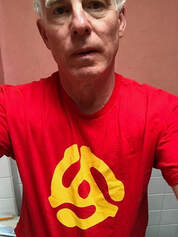My Coney Island by Susan E. OringelReviewed by Charles Rammelkamp “My Coney Island” Poetry Finishing Line Press, 2019 $14.99, 42 pages ISBN: 978-1-63354-946-7 Dedicated to the memory of her parents, Robert and Beverly Oringel, Susan Oringel’s My Coney Island re-creates a vital part of the poet’s past growing up in a loving Jewish family in post-war Brooklyn. As she writes in the final poem of the collection, “My Coney Island”: “In dreams the only sound I hear is the surf’s roar, creation’s bray, white-fingered, looming waves grabbing me back to the avenues, Surf, Neptune, Mermaid, land where my parents played and I began, begin again. This poem is like the back cover of a book that contains her memories, the front cover – the initial poem – one called “Song of Coney Island,” in which she speaks fondly of returning to that long-ago Coney Island “where my / grandpa still fishes on the pier and Grandma grinds carp / for gefilte fish.” The poems between the covers, all tinged, inevitably, with a kind of nostalgia, include glimpses of her mom and dad as healthy, vital people (“Not Just Any Fool,” “My Father’s War,” “My Father’s Workshop” focusing on her father; “La Vie en Gris,” “Chopped Chicken Livers” and “Mother Love” on her mother). They also how them as they are dying, felled by cancer and a brain tumor (“Pink Balloon,” “How the Body,” “House,” “Struck,” “Last Days,” “The Last Lunch”). Inevitably there are reflections on the fleeting nature of existence. “Playing on the Beach” is a poem about the painter Robert Marsh’s depictions of Coney Island, “a sea of people escaping Depression’s end, the war, / and city heat.” Marsh’s paintings of Coney Island and Greenwich Village “displayed flesh and pleasure, like the Parisian dancers and prostitutes / painted by Degas and Toulouse-Lautrec.” They capture glimpses of innocence, before we are “tethered.” But aren’t we all tethered? First to our own bodies, then to others, to life, and finally to death, as the more vaguely painted, surrounding bodies suggest, muscled but fading from the scene. The other beach-goers, the museum notes, with their “muscular and frieze-like postures suggest the bacchanalian celebrations painted in classical times.” Yes, even the ancients craved love and ecstasy, escape from what was, is, surely waiting. You can’t avoid death. But in poems like “My Milosz Dream” and “Mom and Dad Barbeque in Heaven” she envisions precisely this “re-creation,” if only in memory and verse. “And for a moment,” the poem concludes, “each of us / they loved on earth feels inexplicably blessed.” But it’s Oringel’s skill with language that truly delights. It’s on full display in the poem, “Olive Juice.” I love alliteration’s tricky licks and the ahs of assonance – time to relax – delicious fricatives and glottal stops. The blunt flat hammers of stab and shit. Those Anglo-Saxons really knew their, er, stuff, and the polysyllabic latinates aren’t too shabby… She goes on to observe that “olive juice” said to someone across a room sounds like “I love you.” “And no matter how nicely someone /says my full first name, it always sounds like Mother scolding.” Biography Charles Rammelkamp is Prose Editor for BrickHouse Books in Baltimore and Reviews Editor for The Adirondack Review. A chapbook of poems, Jack Tar’s Lady Parts, is available from Main Street Rag Publishing. Another poetry chapbook, Me and Sal Paradise, was recently published by FutureCycle Press. An e-chapbook has also recently been published online Time Is on My Side (yes it is) –http://poetscoop.org/manuscrip/Time%20Is%20on%20My%20Side%20FREE.pdf Comments are closed.
|
Book ReviewsWelcome to KD's re-vamped blog, where you'll find book reviews by our editor Matthew Weddig. Archives
August 2023
Categories
All
|
- Home
- About
- Press
-
Issues
- Issue 51
- Issue 50
- Issue 49
- Issue 48
- Issue 47
- Issue 46
- Issue 45
- Issue 44
- Issue 43
- Issue 42
- Issue 41
- Issue 40
- Issue 39
- Issue 38
- Issue 37
- Issue 36
- Issue 35
- Issue 34
- Issue 33
- Issue 32
- Issue 31
- Issue 30
- Issue 29
- Issue 28
- Issue 27
- Issue 26
- Issue 25
- Issue 24
- Issue 23
- Issue 22
- Issue 21
- Issue 20
- Issue 19
- Issue 18
- Serenity
- Issue 17
- The Audio Room
- Issue 16
- Issue 15
- Issue 14
- Play It Again
- Issue 13
- Issue 12
- Issue 11
- Issue 10
- Issue 9
- Issue 8
- Issue 7
- Issue 6
- Hand to Mouth
- Issue 5
- Issue 4
- Issue 3
- Issue 2
- Issue 1
- Submissions
 RSS Feed
RSS Feed
